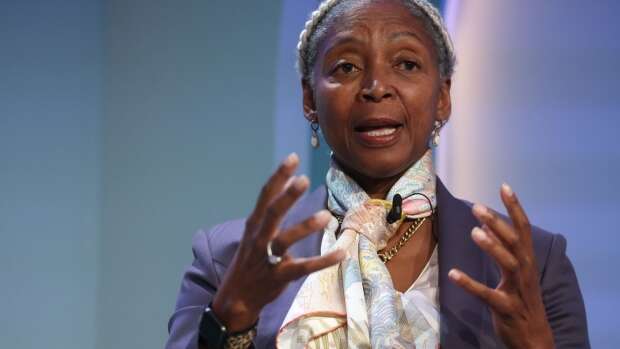Debt crisis is top risk for Africa, Standard Bank Chair says
“People went and got low-interest loans by the bucketload,” Chairwoman Nonkululeko Nyembezi said Wednesday on a panel at the World Economic Forum in Davos, Switzerland. “We now have to contend, country by country, with how to support countries.”

A sovereign-debt crisis is the biggest issue facing Africa right now, and nations need to address corruption and implement “fundamental structural reforms” to address their problems, the chairwoman of the continent’s biggest bank by assets said.
“People went and got low-interest loans by the bucketload,” Chairwoman Nonkululeko Nyembezi said Wednesday on a panel at the World Economic Forum in Davos, Switzerland. “We now have to contend, country by country, with how to support countries.”
- Advertisement -
According to the International Monetary Fund, more than half of the low-income countries in the region now assessed to be at a high risk of or already in debt distress.
- Advertisement -
Ethiopia became the latest African to default on its debt after it failed to make an interest payment in December, joining a league of non-paying nations that includes Zambia, Ghana and Sri Lanka.
Nyembezi said building resilience in sub-Saharan African economies would not be possible without “knocking head-on” the issue of corruption.
Transparency International’s 2023 Corruption Perceptions Index puts sub-Saharan Africa’s regional average score of 32%, with 44 of the 49 countries assessed still scoring below 50%.
“People will come in with funds, with capital, but they want to know that it’s being deployed in the right way,” she said.
Nyembezi’s proposals for reforms include eliminating red tape when opening businesses, and boosting tax authorities’ ability to collect revenue from the continent’s large informal economy. Being able to harness this money is an an absolute requirement for nations to develop human capital and drive economic growth, she said.
The region also needs to liberalize its foreign-exchange markets, Nyembezi said, adding that the era of fixed exchange rates is “long past.”
“We need governments to start with clearly thinking about this,” she said.
- Advertisement -
Nyembezi called for greater transparency on the balance sheets of highly indebted countries if they want to attract investment.
Further, governments should consider allowing a “credible body” such as the World Bank to certify country-level sustainability plans to boost investor confidence in projects to cut emissions.
“If you’re deploying capital as an outsider into any kind of sustainability plan, you know that it is credible, something standing behind that that you can rely on,” she said.
Gas Plans
Standard has asked the World Bank to be more explicit about when it would back using natural gas resources, which the Johannesburg-based lender considers a transition tool for African countries that have fossil-fuel reserves.
She gave the example of Nigeria’s commercial hub of Lagos — with a population of about 15 million people — which could lessen citizens’ need to provide their own electricity through generators if it could instead harness gas, which the nation flares.
“I think it is time for us to stop pussyfooting about funding gas because this is one of the most important levers” to address climate change and develop economies, she said.
The World Bank in 2019 stopped financing oil and gas extraction projects, aside from “exceptional circumstances” where projects in the poorest countries help connect more people to energy.
But in March last year, the Washington-based lender expressed support to the development of Mozambique’s giant natural gas resources if it’s the cheapest way to boost energy access in one of the world’s poorest nations.
- Advertisement -



